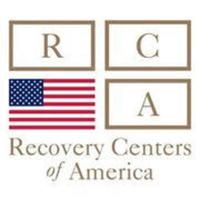Philadelphia, PA - Our nation is grappling with an epidemic and, sadly, Pennsylvania is not immune. Our neighbors are being poisoned at a rate of 43 deaths per 100,000 people – far exceeding the national average of 22 per 100,000 – according to a recent report by the DEA Philadelphia Division and the University of Pittsburgh, for a total of 5,456 deaths last year. That’s just a little less than the equivalent of two September 11th attacks in our state alone.

Alarmingly, within a recent four-day period, a Philadelphia hospital treated 18 patients for overdose who reported using cocaine; however, unknown to these patients, their cocaine was poisoned with the deadly fentanyl, resulting in life-threatening overdoses and three fatalities. In September, three people died in San Diego, and it was very recently revealed that rapper Mac Miller died of a fentanyl-cocaine overdose.
Fentanyl is a cheaper, more addictive alternative to more expensive drugs like heroin and oxycodone and offers a similar though deadlier high, so drug-dealers are cutting it into other illegal drugs to increase profits. Most of the fentanyl that ends up in Pennsylvania is manufactured in China and Mexico and then smuggled into the United States.
Fentanyl is a deadly substance even in small amounts, and especially dangerous for unsuspecting consumers. If a person’s drug of choice is not opioids but cocaine, for example, they have no tolerance to its poisonous effects, increasing their chances of overdose and death.

Some believe that fentanyl may be accidentally getting into the cocaine supply in a cross-contamination situation that occurs on the drug-trafficking side. Others say dealers or consumers are purposely mixing heroin and cocaine for a “Speedball” high, but they are unaware they’re using the deadlier fentanyl instead of heroin. Sadly, researchers from the Philadelphia Department of Public Health found that a cohort of “newer, younger” Philadelphians indicated that they actually chose to use the more deadly fentanyl.
Lack of awareness about synthetic opioid potency, variability, availability, and increasing adulteration of the illicit drug supply poses substantial risks to individual and public health, concluded The Journal of the American Medical Association. Whatever the cause of fentanyl’s recent proliferation, it is clear that we must do something to address it, particularly as it spreads into other drugs like cocaine, multiplying its deadly effects. Public awareness campaigns and instruction for using the opioid overdose reversal drug naloxone have been rolled out in New York; these efforts and a strategy to reduce the illicit supply of opioids – along with expanded access to addiction treatment – seem to be most actionable.

I applaud the DEA Philadelphia Division and the University of Pittsburgh for their recent comprehensive report, conclusions, and suggestions for moving forward. I also commend Penn Medicine emergency department physicians for urging collaboration and communication across the state following those 18 overdoses in a four-day period linked to cocaine laced with the deadly, potent fentanyl that left three dead. I am also hopeful for the SUPPORT for Patients and Communities Act, a bipartisan legislative package to combat the opioid crisis that was recently signed into law. Together, I believe we can and will make a difference.
To get help today, call 844-340-8840.
 Deni Carise, Ph.D., is a chief scientific officer for Recovery Centers of America, an innovative in-network, neighborhood-based treatment provider dedicated to individualized, evidence-based services. Dr. Carise also is an adjunct assistant professor at the University of Pennsylvania and has served as an important, national voice on substance use disorder, treatment and recovery for more than 25 years.
Deni Carise, Ph.D., is a chief scientific officer for Recovery Centers of America, an innovative in-network, neighborhood-based treatment provider dedicated to individualized, evidence-based services. Dr. Carise also is an adjunct assistant professor at the University of Pennsylvania and has served as an important, national voice on substance use disorder, treatment and recovery for more than 25 years.


